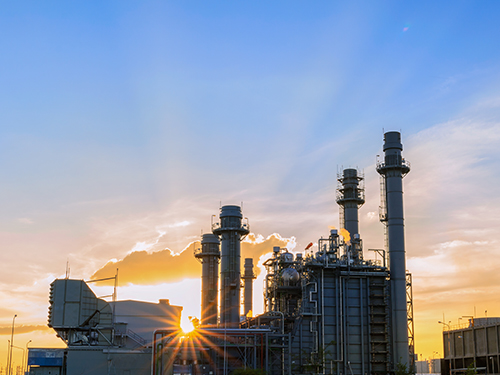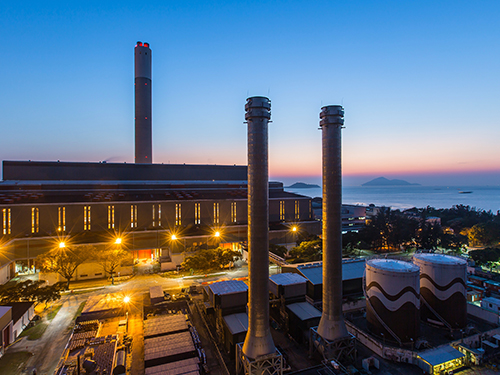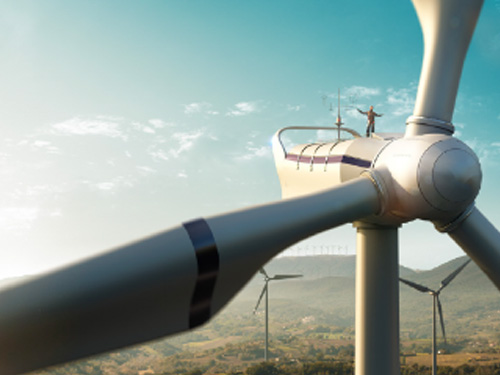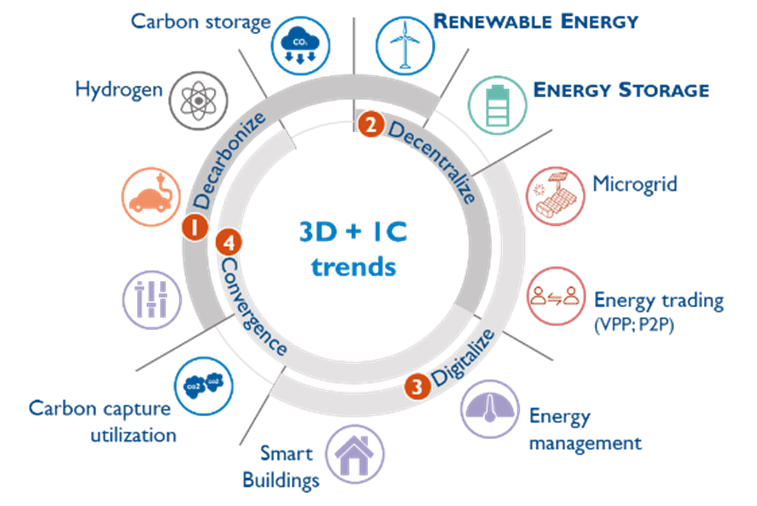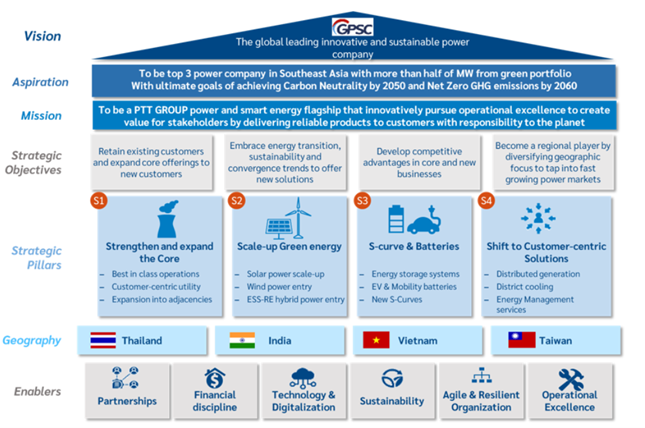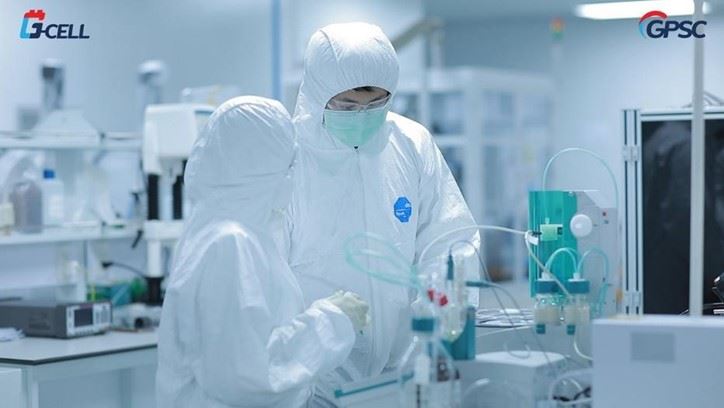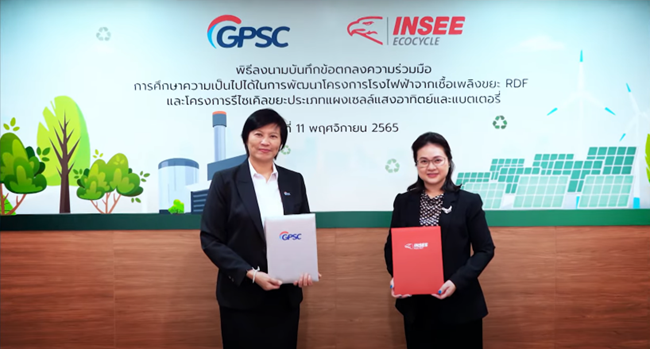Collaboration in Support of Innovation Research and Development
GRI 203-1, 203-2
GPSC recognizes the importance of cooperation between agencies to encourage innovation commercialization and foresees an opportunity for open innovations to serve as a way for receiving and exchanging knowledge, ideas, and experiences from and with external parties in order to add value or create new products that enhance GPSC’s competitiveness and energy innovation. GPSC focuses on innovation research and development through various collaborations. Relevant projects are as follows:
Development of the first floating solar in Thailand (G-Float)

In collaboration with a company in PTT Group and Combined Heat and Power Producing Company Limited (CHPP), GPSC has developed a pilot project for the installation of a floating solar known as G-Float – a commercial floating solar buoy catering to industrial customers, government agencies, and private organizations wising to adopt renewable energy.
Designed to maximize electricity production efficiency, G-Float is made of innovative high-density polyethylene with special properties, such as flexibility, strength, and durability and is non-toxic to marine life as well as can reduce barnacle buildups. Easy to install and maintain, G-Float supports various solar panel models from the standard size to larger and heavier ones, and the material is recyclable and boasts a service lifespan of 25 years.
Efficiency enhancement benefits
- Service life extended to 25 years
- Enhanced electricity production efficiency thanks to materials with greater corrosion resistance
Revenue increase and cost reduction benefits
- 390,000 baht saved in electricity costs (for the installed capacity of 100 kW)
- 7.8 million baht saved throughout service life
Human resource and innovation benefits
- Opportunities for personnel to enhance capabilities, skills, and experience on floating solar
Other benefits
- 36 tonsCO2eq of greenhouse gas (GHG) emissions reduced per year and over 725 tonsCO2eq per year throughout service life
- The plastic resin in the product has no impact on marine ecosystems (certified by the United States Food and Drug Administration)
- The project can serve as a case study for communities interested in solar power systems.
Smart Energy Community at Vidyasirimedhi Institute of Science and Technology (VISTEC)
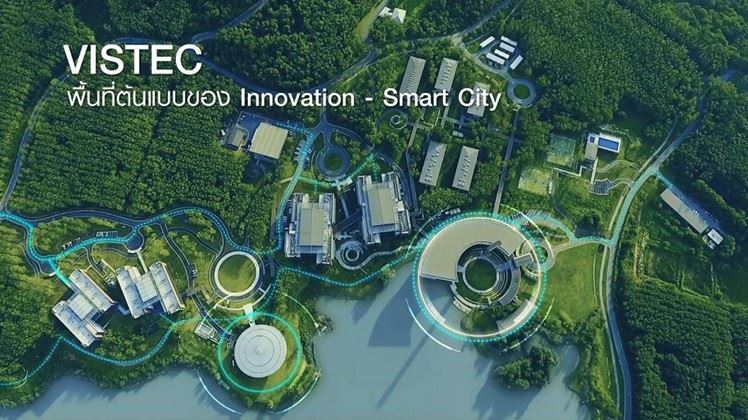
GPSC has partnered with PTT Public Company Limited to study and develop a smart energy management system through the use of various technologies at Vidyasirimedhi Institute of Science and Technology (VISTEC). Under this collaboration, new energy technologies and innovations are studied to create guidelines for further development and real-life applications in the future, such as reliable power production using solar rooftops and floating solar, the use of energy storage systems (ESSs) to optimize renewable energy systems, and the adoption of artificial intelligence (AI) to analyze electricity production, storage, and distribution, as well as the use of blockchain for digital peer-to-peer (P2P) on-grid power purchase between facilities through smart contracts, which will obviate intermediaries and display results in real time.
Efficiency benefits
- Over 38.5% increase in renewable energy production in buildings
Revenue increase and cost reduction benefits
- 1.75 million baht in expected income from solar energy system installation in the first phase, with an additional 4.16 million baht expected in 2021, totaling 5.8 million baht
Human resource and innovation benefits
- Renewable energy knowledge and skills enhancement for further investments in the future
- Employees can access new technologies and innovations, such solar rooftops, floating solar, and ESSs
- The collaboration supports GPSC’s main policies to push forward the use of green technology and contribute to neighboring communities.
- The collaboration provides a case study of innovations in the electricity business and guidelines for developing various energy management approaches in the future.
Other benefits
- 1,211,306 tonsCO2eq of greenhouse gas (GHG) emissions reduced per year
- A renewable energy learning center has been established for communities.
- A good relationship has been fostered between GPSC and surrounding communities.
- VISTEC students are encouraged to take part in learning and experimenting with innovations.
Smart Energy Project, The Model Learning Center of Energy Management for Sustainability at Suranaree University of Technolog (SUT)
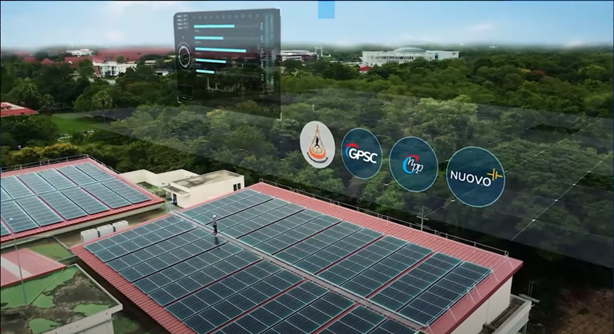
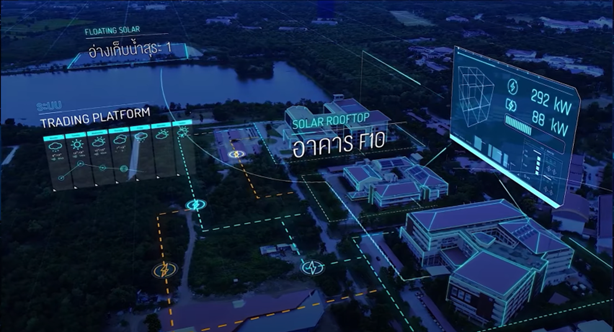
GPSC cooperates with the Combined Heat and Power Producing Co., Ltd. (CHPP), Nuovo Plus Co., Ltd. (Nuovo Plus) and Suranaree University of Technology (SUT) to carry out a project to promote electricity production from solar energy for the building in university and cooperate in research and development of solar energy. This groundbreaking initiative aims to establish SUT as a hub for renewable energy research and development contributing to Thailand's transition through the installation of 3 electrical systems with a total capacity of 6 megawatts, including:
1. Solar Rooftop: Utilizing Mono PERC Half-Cell Module technology, this system features high-performance, small-sized silicon cells that ensure long-lasting operation.
2. Bifacial Solar Rooftop: This innovative system boasts a unique design that allows light to penetrate from both sides, enhancing overall efficiency.
3. Floating Solar: Employing CHPP's G Float technology, this system utilizes special polyethylene plastic pellets infused with UV stabilizers, ensuring durability, environmental friendliness, and recyclability at the end of its lifespan.
To complement the solar energy systems, a digital energy management system is being implemented to optimize energy utilization. This system will be paired with a 100 kW/200 kWh Battery Energy Storage System (BESS), transforming SUT into a pioneering model for smart grid management in Thai universities. This intelligent network will pave the way for future advancements towards smart cities within the Nakhon Ratchasima province.
The project further embraces innovation with the development of a Peer-to-Peer Trading platform for electricity. This platform will enable real-time monitoring and trading of electricity, empowering SUT to optimize energy consumption and generation. The integration of BESS and an AI-powered Monitoring Platform will facilitate intelligent analysis of energy usage patterns, leading to the development of a comprehensive trading platform for efficient energy management.
Efficiency benefits
- Increase renewable energy production within the university by 8.5 million kilowatt-hours per year.
Revenue increase and cost reduction benefits
- Reduce the university's electricity bill by up to 510 million baht over the 25-year life of the project.
Human resource and innovation benefits
- Enhance skills and knowledge in renewable energy innovation for further investment in the future.
- GPSC employees can access to new technologies and innovations such as rooftop and floating solar power systems and electrical storage applications.
- Align with GPSC's core policy of promoting environmentally friendly technology that benefits surrounding communities.
- Serve as a case study for innovation in the electricity business group, including the development of diversified energy management approaches for the future.
Other benefits
- Reduce greenhouse gas emissions by 115,000 tons of carbon dioxide equivalent over the 25-year project lifespan, or 4,600 tons of carbon dioxide equivalent per year.
- Floating Solar reduces reservoir evaporation by more than 30,000 cubic meters per year.
- Serve as a learning center for renewable energy technology and innovation for the community.
- Enhance the good relationship between the company and the surrounding community.
- Support students from SUT university to participate in learning and experimenting with innovation.
Battery Innovation of the Future: G-Cell Battery
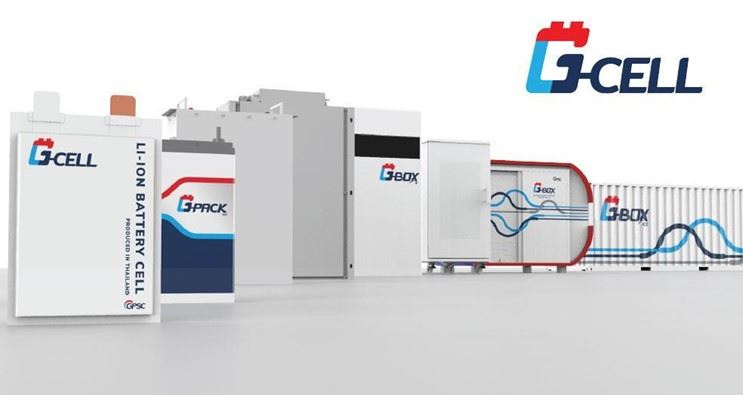
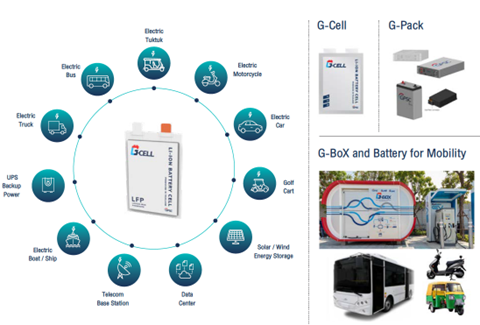
In collaboration with 24M Technologies, Inc., a US-based expert specializing in lithium-ion batteries, to research and develop a semi-solid battery known as G-Cell to support commercial expansion. It is distinguished by its long service life, recharging cycles of 1000-10,000 times, and its storage time of up to 350 days, which is 1.2 times longer than conventional lithium batteries. G-Cell can also regulate its own temperature even in a high-temperature environment to reduce the chance of a short circuit within the battery. G-Cell is also lightweight and environmentally friendly as it does not contain any binder, making it easier to recycle and allowing it to be recycled at a lower cost than other types of batteries.
G-Cell can be applied to a wide range of products, both stationary and mobile, through modifications into products such as G-Pack and G-Box. G-Cell is also compatible with future technologies, such as charging station systems, telecommunication systems, and data centers that require stable electric power distribution.
Building upon its success, the company has partnered with Arun Plus Co., Ltd. (ARUN PLUS) to establish Nuovo Plus Co., Ltd. (NUOVO PLUS), a company specifically focused on battery manufacturing and development. This move aims to accelerate battery innovation and meet the needs of emerging markets. In parallel, the company will focus on developing battery applications in various sectors, including electric vehicles (EVs), energy backup systems, energy storage systems for renewable energy sources, and enhancing the reliability and security of power systems for telecommunications and data centers. This aligns with the national policy of driving the automotive and energy storage industries and global trends, as well as supporting PTT Group's ambition to become a leader in the EV industry and transition to a low-carbon society.
Efficiency enhancement benefits
- 50% reduction in production time and costs
- 30% reduction in coatings for battery components, making the battery more recyclable
Revenue increase and cost reduction benefits
- 2,500 million baht in revenue expected from G-Cell based on the production capacity of 1 GWh
- Target battery production capacity of 5-10 gigawatt hours (GWh) per year in 2030 (2030)
- Approximately 3,000 baht generated in income per GWh in 2025
- 23% reduction in import taxes due to reduced ESS imports
Human resource and innovation benefits
- Employee skill enhancement through research collaboration with international ESS experts
- Elevation of ESS development in Southeast Asia
Other benefits
- High-safety batteries with temperature control in the high-temperature environment of Southeast Asia
- Over 40% reduction in coatings for battery components than usual, making the battery more recyclable, in line with circular economy principles
